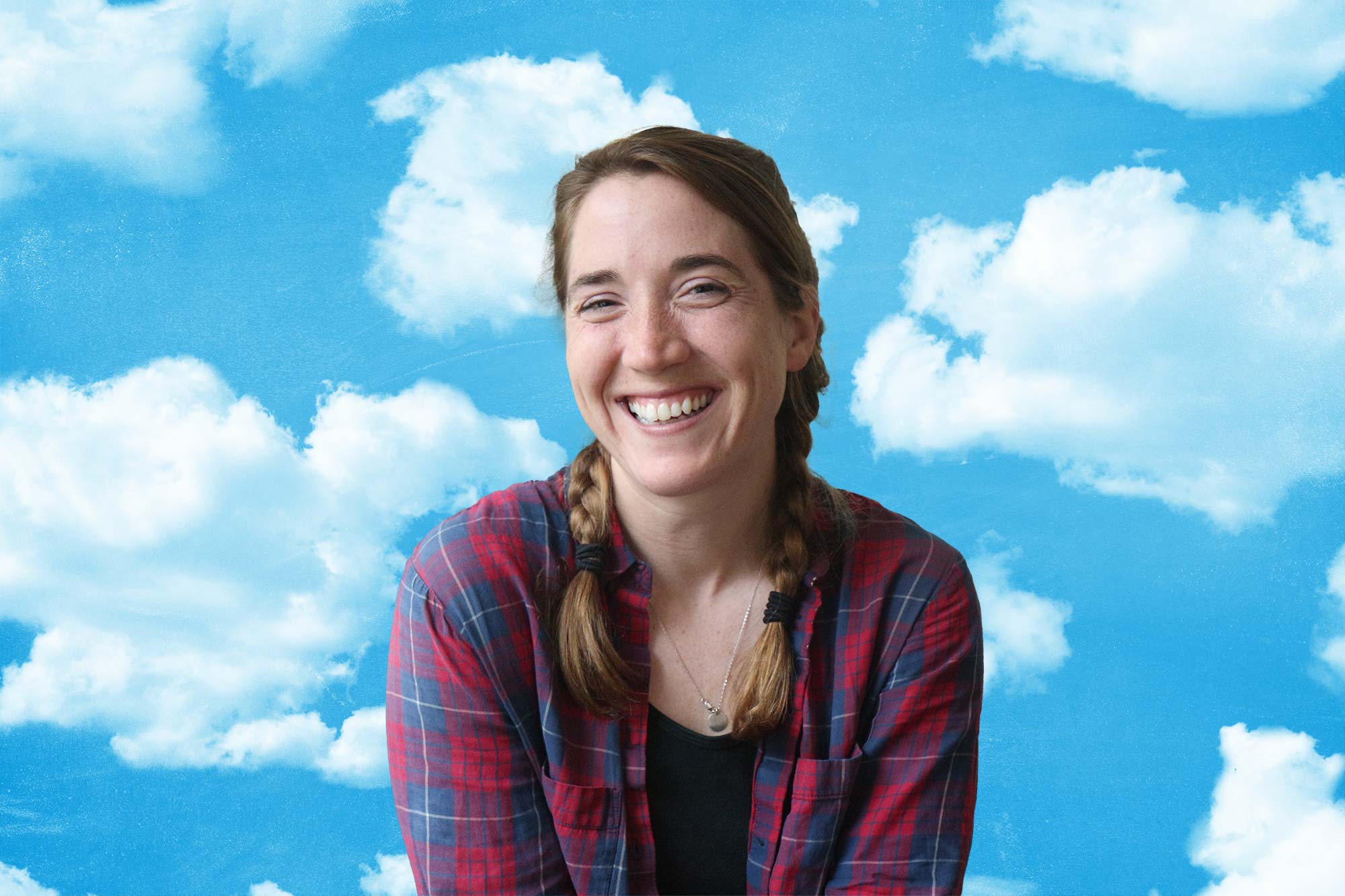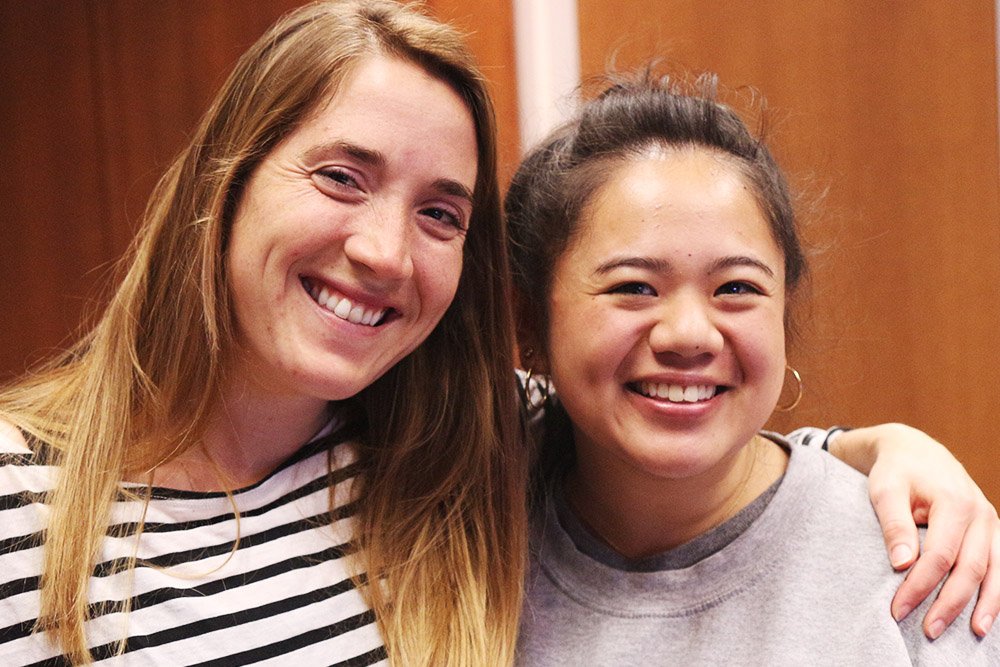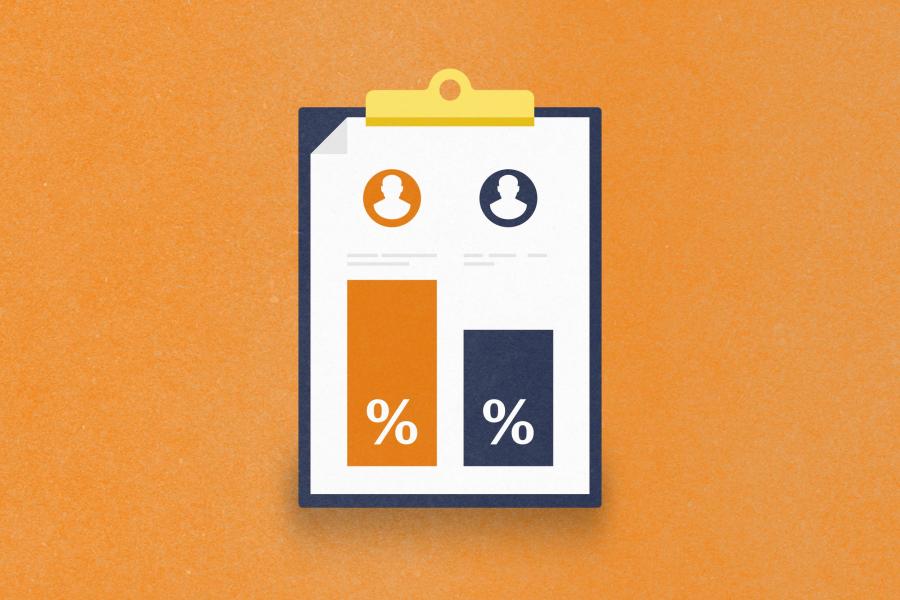“I thought entering health care would be the end [of my environmentalism], but it’s turned out to be quite the opposite,” Kirby said. “There are a lot of people in nursing and medicine who care really deeply about the planet, and they’re motivated to change things. It’s very buoying to see how many people are interested in this.”
A climate and health conference in early 2021 first brought Kirby into contact with UVA nursing professors Tracy Kelly, Emma Mitchell and Kathryn Reid, champions of the Nurses’ Climate Challenge, which offers tools, resources and support for faculty committed to teaching climate and health lessons in their courses.
As Kirby’s environmentally minded connections multiplied, so did her ideas and determination to act. Over the last year, she led in developing a Planetary Health Report Card tool for measuring nursing schools’ planetary awareness. The work has presented speaking opportunities at conferences, and landed a national award and other applause from national nursing and environmental groups.
The first Planetary Health Report Card tool was created in 2019 by a group of University of California, San Francisco medical students to assess across five metrics about the climate consciousness of medical programs.
Following a similar model, Kirby, fellow clinical nurse leader student Alyssa Dimatulac, and a team of nursing students from the University of Minnesota, the University of Brighton, the University of Lancaster, and Germany’s Esslinger Science and Health College compiled their own tool to assess nursing programs’ environmental mindedness across curricula (how well and how often nursing courses embed topics of climate’s impact on health), day-to-day sustainability practices, student support, community impacts and interdisciplinary research. She hopes the tool ultimately becomes a commonplace way for prospective students to assess programs that align with their personal values.
The tool also aims to point institutions to existing ready-made lessons made by organizations such as the Global Consortium on Climate Health and Education, which has PowerPoint presentations that can be folded into, say, an asthma or pharmacology lesson.
“The more readily available, the easier it is for people to feel, ‘Oh, I can include this,’” Kirby said. “Yes, faculty have their routines, but many are committed to weaving these lessons in.”
Assistant professor Tracy Kelly, a Nurses’ Climate Challenge advocate who is on the steering committee of Virginia Clinicians for Climate Action, said weaving environmental awareness into a nursing education is essential.
“Educating nurses on the health impact of climate change is as important as a class on pharmacology or physical assessment,” Kelly said. “It is relevant to the individual patient at the bedside and the larger populations in the community.”
And while the report card offers a one-time assessment, the tool is also meant to “be motivational,” Kirby said, and a living document – something that “is a lot more manageable when you look at it metric by metric. Because even starting small is starting somewhere.”











